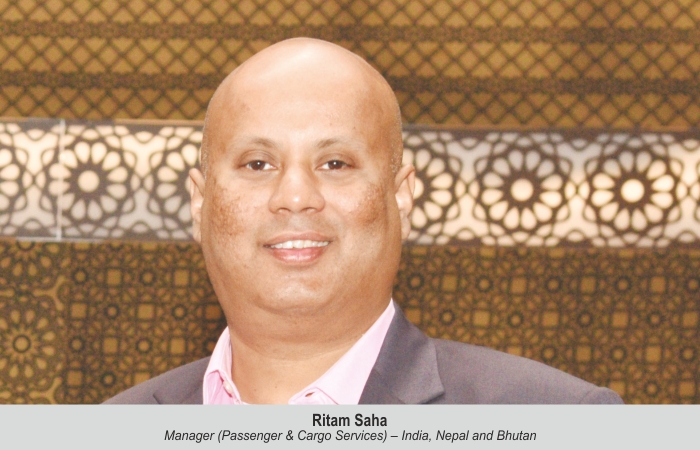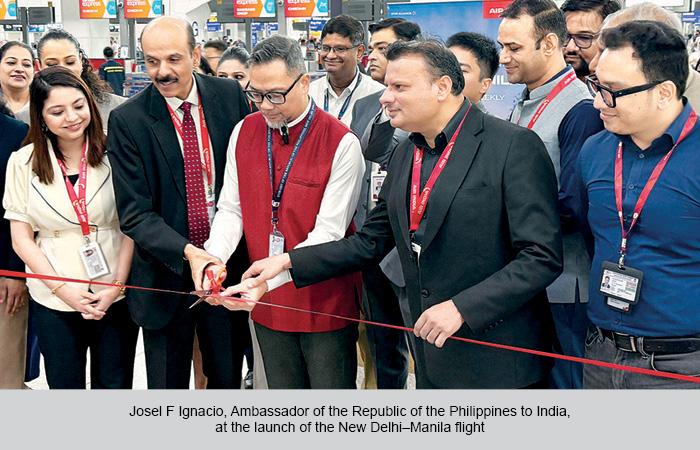Ritam Saha, Manager (Passenger & Cargo Services) – India, Nepal and Bhutan, International Air Transport Association (IATA), reveals that rather than witnessing an exodus, the association is seeing an increase in the number of travel agents. He also speaks at length about the aviation industry’s sustainability initiatives.
Hazel Jain
The lockdown wreaked havoc on the aviation industry and led the industry to prepare for the worst – a mass exodus of IATA travel agents. But Ritam Saha, Manager (Passenger & Cargo Services) – India, Nepal and Bhutan, International Air Transport Association (IATA), shares a positive development. “A lot of people thought that many travel agents will exit the industry post the pandemic. But the industry has grown over time. Just to share data, in 2021, we had 430-plus accreditations of fresh travel agents coming onboard the IATA portfolio. So that speaks a lot. We have now become more flexible in terms of our format of accreditation – we now have a cashless mode as well as cash method. You can come onboard with financial security or even without that. It has translated to more travel agents coming in,” says Saha, adding that IATA has been actively talking to various travel trade national bodies and associations to promote these features to their members.
Saha is also vocal and passionate about being sustainable as an industry. Speaking at the panel discussion on sustainability, organised by DDP Group on the sidelines of the M!CE Travel Show in Pune recently, he says, “It was a fantastic idea for DDP Group to organise a discussion on sustainability. It is the topic of the hour. I think it is high time that we realise how we need to consider our actions and take initiatives towards sustainability. Contrary to popular belief that aviation contributes substantially to carbon emissions, I don’t think that is accurate. Only three per cent of the total emissions are contributed by the aviation industry. Having said that, IATA predicts that 2050, about 10 billion people will take to the air, which is more than the world population today. So, the quantum of CO2 emissions expected to be much more than what it is now. But IATA has been working with airlines to commit to a mission called ‘Fly Net Zero’. By 2050, we plan to have emissions reduced to zero.”
Sharing a broad outline of the plan that IATA is building upon, Saha says, “It is built around four strategies. The number one and the best foundation of the strategy is sustainable aviation fuel – not the fossil fuel we are using these days. It involves generation of fuel from urban waste, from plants and trees and this is capable of cutting down emissions by 65 per cent, which is quite substantial. The second thing is newer technology. We have newer planes, we are talking hydrogen engines propelling aircrafts, which will have zero emissions. It sounds like a dream today but I think the future holds immense potential. We thought electric cars would be a dream too, but today we see many e-vehicles. IATA predicts that by 2035, there will be airports handling aircraft which run on alternate, sustainable aviation fuels.”
Another point is developing infrastructure and operational efficiencies. Saha elaborates, “Infrastructure is a great area to work on. Improved air traffic management will reduce taxi times. This will, in turn, reduce fuel burn-up, thereby reducing carbon footprint. Last but not the least is mapping and capturing carbon emissions per passenger. So, IATA has come up with a calculator which will be published very soon. We have a method by which we can actually calculate what is the carbon emission per passenger when they travel. Also, IATA actively supports the Carbon Offsetting and Reduction Scheme for International Aviation (CORSIA) programme launched by
International Civil Aviation Organisation (ICAO).”
 TravTalk India Online Magazine
TravTalk India Online Magazine





